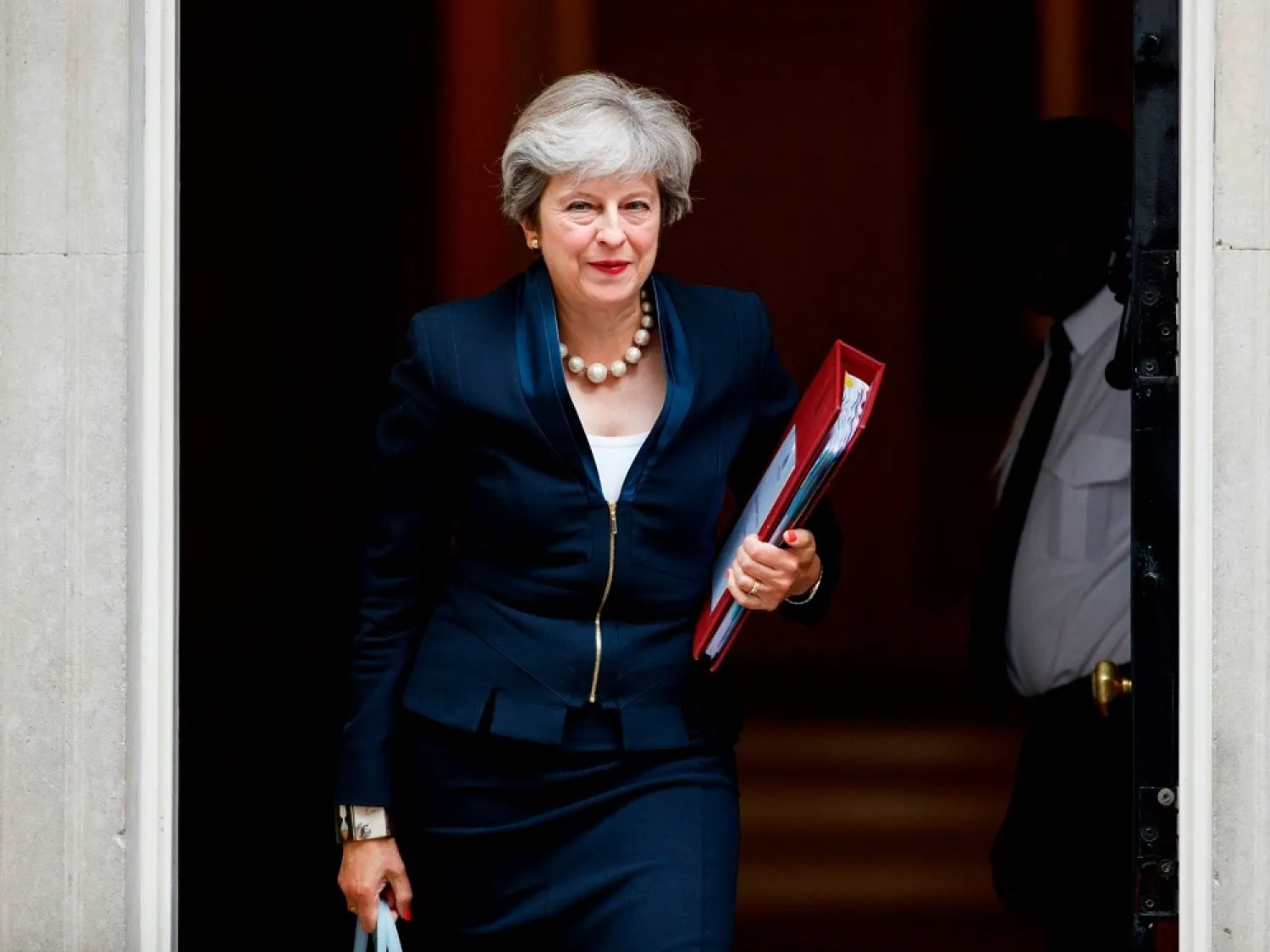British Prime Minister Theresa May faced on Sunday mounting opposition as 40 lawmakers from her Conservative Party agreed to sign a letter of no-confidence in her.
The Times newspaper reported that the number is eight short of the figure needed to force a party leadership contest. If triggered, the mechanism would force May from office and replace her with another Conservative.
The victor would take over as Conservative leader and as prime minister. A national election is not necessary for that to happen.
May has been struggling to maintain her authority over her party since a snap election on June 8 which she called thinking she would win by a wide margin, but instead resulted in her losing her parliamentary majority.
Divided over how to extricate Britain from the European Union and hit by multiple scandals involving ministers, May’s government has failed to assert control over a chaotic political situation that is weakening London’s hand in Brexit talks.
An earlier attempt to unseat May in the wake of her disastrous speech at the annual party conference fizzled out, but many Conservatives remain unhappy with the prime minister’s performance and talk of a leadership contest has not gone away.
May has lost two cabinet ministers in as many weeks: Michael Fallon stepped down as defense secretary after becoming implicated in a wider scandal about sexual misconduct in parliament, while Priti Patel resigned as aid minister after she was found to have had secret meetings with top Israeli officials.
The PM is caught in a vise of pressure from both sides of the Brexit debate as she tries to get a key plank in the government's plans for leaving the EU through parliament.
The European Union (Withdrawal) Bill returns this week to the House of Commons, where it will face a flurry of amendments from lawmakers.
The bill is designed to prevent a legal vacuum by converting some 12,000 EU laws into British statute on the day the UK leaves the bloc in 2019. Legislators are scheduled to hold several days of debate and votes starting Tuesday.
But many lawmakers claim the bill gives the government too much power to amend legislation without parliamentary scrutiny. They will try to pass amendments to water down those powers.
And opponents of Brexit — both from the opposition and from May's Conservative Party — will seek to give parliament a binding vote on the final divorce deal between Britain and the EU.
In a column in Friday's Daily Telegraph, May warned pro-EU MPs that she "will not tolerate" efforts to block Brexit through parliamentary maneuvers,
As Brexit talks resumed in Brussels, she sought to reimpose her authority over potential rebels following the loss of the two ministers.
"The EU Withdrawal Bill is the single most significant piece of legislation in this parliament because it is fundamental to delivering a smooth and orderly Brexit," wrote May.
"Where MPs think they can improve the Bill, this government will listen to them.
"But we will not tolerate attempts from any quarter to use the process of amendments to this bill as a mechanism to try to block the democratic wishes of the British people by attempting to slow down or stop our departure from the European Union," she added.
Meanwhile, the former British ambassador to the European Union who helped author Article 50, the EU's legal mechanism for withdrawal, insisted on Friday that the process can still be reversed.
"We can change our minds at any stage of the process," John Kerr said at a London event hosted by the pro-EU Open Britain.
"Actually, the country still has a free choice about whether to proceed. As new facts emerge, people are entitled to take a different view.
"And there's nothing in Article 50 to stop them."
May dismissed the claims, writing "it will be there in black and white on the front page of this historic piece of legislation: the United Kingdom will be leaving the EU on March 29, 2019 at 11pm GMT."









